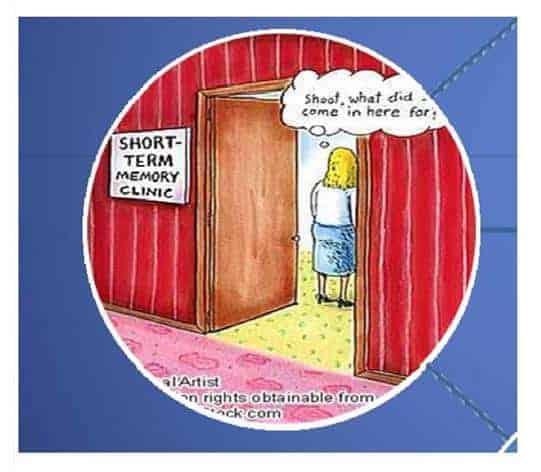Why Working Memory is Important! “Wait, What Are We Talking About?”
Working memory is a critical skill that can undermine an individual’s abilities. In fact, some argue that working memory — even more than overall IQ – is the greatest predictor of academic success.
The NIH defines working memory as, “The retention of a small amount of information in a readily accessible form. It facilitates planning, comprehension, reasoning, and problem-solving.” I like to think of working memory as the post-it notes holding the information we need to perform a task.
If it is a low skill, it can show up as difficulties with:
Reading Comprehension – an inability to retain details and information.
Math– we work with many students who understand math concepts but make careless mistakes. As students get older and math becomes more multiple step, working memory inhibits their abilities.
Organizational skills – students with low working memory are forgetful which means assignments and tasks fall through the cracks.
Verbal or written expression – working memory is also the ability to organize our thoughts. When low, putting our thoughts together to summarize a story in verbal or written form is difficult.
Reading fluency – poor working memory impacts word recognition and negatively impacts reading fluency.
Working memory is one of the core skills we strengthen at LearningRx through our 1-on-1, individualized training. Our age range is 5 years old to 95 years old. Whether you have a young loved one or older loved one struggling with working memory deficiencies, we can help!
Working memory is a critical skill that can undermine an individual’s abilities. In fact, some argue that working memory — even more than overall IQ – is the greatest predictor of academic success.
The NIH defines working memory as, “The retention of a small amount of information in a readily accessible form. It facilitates planning, comprehension, reasoning, and problem-solving.” I like to think of working memory as the post-it notes holding the information we need to perform a task.
If it is a low skill, it can show up as difficulties with:
Reading Comprehension – an inability to retain details and information. The gist of the information may be understood, but details are often missed.
Math – we work with many students who understand math concepts but do poorly in math due to careless mistakes. As math increases in difficulty, it also becomes more multiple step. Low working memory causes the “post-it notes” to peel off and careless mistakes are made and problem solving is inhibited.
Organizational skills – students with low working memory are forgetful which means assignments and tasks fall through the cracks. Often parents or teachers try to employ strategies to overcome this. For example, it would make sense to write assignments down in a planner if memory is low. However, students then often forget to use their planner due to low memory!
It’s also common that assignments are completed but then students forget to turn them in.
Verbal or written expression – working memory is also the ability to organize our thoughts. The ability to put our thoughts together to summarize a story in verbal or written form is often difficult with a working memory weakness.
Reading fluency – to be an effective and fluent reader, word recognition is critical. Poor working memory impacts this ability and students often end up sounding out all the words, guessing at words they do not recognize or skipping words.
It is also common for a young child to be able to sound out each individual letter sound of a word, but then struggle to blend them all by the time the get to the last sound.
Working memory and attention issues go together. In fact, often poor attention (or ADHD) can result in low working memory. If an individual is not paying attention when being given instructions, it will appear they do not remember what they heard. However, the main issue in these instances is poor attention skills.
Working memory is one of the core skills we strengthen at LearningRx through our 1-on-1, individualized training. Our age range is 5 years old to 95 years old. Whether you have a young or older loved one struggling with working memory deficiencies, we can help! The first step is to contact the Savage location to schedule the initial assessment.







